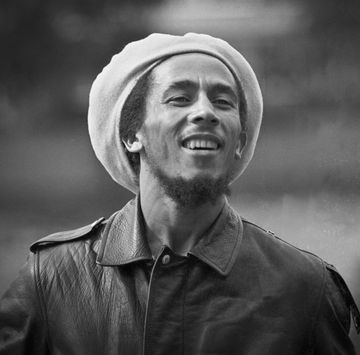(1945-)
Who Is Anni-Frid Lyngstad?
Singer Anni-Frid "Frida" Lyngstad got her big break when her band, ABBA, released their first single "Waterloo" in 1974. The song topped the charts in both the U.S. and U.K., making the band a sensation. Over the next decade they had a number of other hits, including "SOS," "I Do, I Do, I Do, I Do, I Do" and "Mamma Mia."
Early Life
Anni-Frid "Frida" Lyngstad was born on November 15, 1945, in the small town of Ballangen in northern Norway. Her father, Alfred Haase, was a young sergeant in the German Army who arrived in Ballangen in 1943 during World War II. Although he was already married, Haase met a pretty young Norwegian girl named Synni Lyngstad and wooed her with a bag of potatoes—a rare and valuable commodity in wartime Norway. Synni reciprocated with a gift of whale meat, and the pair struck up a relationship. Eventually Synni became pregnant, but after the war ended Haase left Norway before his daughter was born.
Lyngstad grew up believing that her father drowned when his ship back to Germany sank. But this proved to be false. In 1977, at the height of ABBA's popularity, Lyngstad and her father were reunited in Switzerland. Their meeting, despite being cordial, did not lead to a sustained relationship. "It would have been different if I'd been a child. But it's difficult to get a father when you're 32 years old," Lyngstad explained. "I can't really connect to him and love him the way I would have if he'd been around when I grew up."
When Lyngstad was 18 months old, she moved with her mother and grandmother to Torshälla, Sweden, in order to escape the discrimination that children of German soldiers faced in postwar Norway, where bitterness about the Nazi occupation lasted for decades after the war. But only months after the family arrived in Sweden, Lyngstad's mother passed away, leaving her grandmother as her sole guardian.
At 11 years old, Lyngstad made her stage debut performing for a Red Cross charity event. Two years later, at the age of 13, she was hired as a vocalist by a local dance band. For the next eight years, Lyngstad worked as a singer for various dancehall acts around the country. On September 3, 1967, Sweden switched its traffic pattern from driving on the left side of the road to the right; all drivers were advised to stay home except for essential travel. That same night EMI Music Sweden staged a national talent competition called New Faces. They made an agreement to showcase the winner on live TV to celebrate the traffic switch. So that night after Lyngstad won first place, millions of Swedish households tuned in to watch Lyngstad perform live. "It's just like a dream," she marveled in an interview after the performance. EMI producer Olle Bergman said, "We really liked her as an artist and I thought she had all that it took to go places."
Success With ABBA
Despite this promising start to her career, it took several years for Lyngstad to achieve commercial success. She recorded seven solo singles for EMI over the next two years, but none of them achieved much airplay. Lyngstad spent most of her time performing in cabaret shows across Sweden. Then, in 1969, she met and fell in love with Benny Andersson, keyboardist of The Hep Stars, a popular Swedish pop group in the 1960s. Andersson had recently been working with Björn Ulvaeus, another Swedish pop star who was also happened to date a singer named Agnetha Fältskog. In 1970, the quartet performed together for the first time in a cabaret act called Festfolk. Two years later, they released a single called "People Need Love" that became a minor hit in Sweden. Renaming themselves ABBA, an acronym of the first letters of each of their first names (Anni-Frid, Benny, Björn, Agnetha) and also the name of a popular Swedish canned fish company, the group achieved its big break in the 1974 Eurovision Song Contest. ABBA entered a new single called "Waterloo," an upbeat, disco-influenced pop track. They won first place, and the contest catapulted "Waterloo" to No. 1 on the UK pop charts and to No. 6 on U.S. Billboard Hot 100. ABBA was on its way to becoming one of world's biggest pop groups.
Over the next seven years, ABBA enjoyed widespread international popularity. Their self-titled 1975 album spawned such hits as "SOS," "I Do, I Do, I Do, I Do, I Do," and "Mamma Mia," all of which became immensely popular in Europe, Australia, and the United States.
ABBA's next album, 1976's Arrival, featured the singles "Money, Money, Money," "Knowing Me, Knowing You" and "Dancing Queen," ABBA's only song to reach No. 1 in the United States.
The Album (1977) featured "Take a Chance On Me," another iconic international hit. Subsequent albums Voulez-Vous (1979), Super Trouper (1979) and The Visitors (1981) were all also successful worldwide. During these years, ABBA toured the United States, Europe, Australia, and Asia, and were greeted by throngs of fans everywhere they went.
The two couples that comprised ABBA, Ulvaeus and Fältskog and Andersson and Lyngstad, married in 1971 and 1978 respectively. (Lyngstad had been married previously to Ragnar Fredriksson for much of the 1960s.) But when Lyngstad and Andersson announced their divorce in 1981, their strained relationship started to affect their music. They stopped performing together entirely by the end of 1982.
After ABBA
In the aftermath of ABBA's demise, Lyngstad briefly enjoyed a successful solo career, scoring international hits with her albums Something's Going On (1982) and Shine (1984). However, she has recorded only one album since then, a 1996 Swedish-language album that translates into English as Deep Breaths. In 1992, Lyngstad married German Prince Ruzzo Reuss von Plauen, and they remained married until he passed away in 1999. In recent years, she has campaigned for environmental causes throughout Europe.
Although nearly a quarter-century has passed since Lyngstad and ABBA dominated the international music scene, their music remains immensely popular. The 1999 musical Mamma Mia!, featuring exclusively ABBA music, has sold more than 42 million tickets worldwide. Asked to account for ABBA's enduring popularity, Lyngstad points first and foremost to the timeless quality of the group's music. "The fact that the success has continued is of course incredible and fantastic," she said. "First of all, I think it is because of the music. I have understood throughout the years that our music is very efficient music. Second, I think it is also because of a lot of great artists who have performed our songs after us. They have brought our songs back to the charts after many years. And of course the Mamma Mia! musical."
QUICK FACTS
- Name: Anni-Frid Lyngstad
- Birth Year: 1945
- Birth date: November 15, 1945
- Birth City: Ballangen
- Birth Country: Norway
- Gender: Female
- Best Known For: Norwegian singer Anni-Frid Lyngstad and her band, ABBA, became an overnight sensation in 1974 with their first hit single, "Waterloo."
- Industries
- Pop
- Astrological Sign: Scorpio
- Nacionalities
- Norwegian
Fact Check
We strive for accuracy and fairness.If you see something that doesn't look right,contact us!
CITATION INFORMATION
- Article Title: Anni-Frid Lyngstad Biography
- Author: Biography.com Editors
- Website Name: The Biography.com website
- Url: https://www.biography.com/musicians/anni-frid-lyngstad
- Access Date:
- Publisher: A&E; Television Networks
- Last Updated: May 25, 2021
- Original Published Date: April 2, 2014
QUOTES
- I have understood throughout the years that our music is very efficient music.
- The fact that the success has continued is of course incredible and fantastic.












